FAQs on Revenue Cycle Management
Hey there! Scroll down to uncover Frequently Asked Questions (FAQs) on US Healthcare Revenue Cycle Management (RCM).
Didn’t find your question? Please write to us!
Q.) What Is Revenue Cycle Management?
Revenue Cycle Management (RCM) refers to the process of managing a healthcare provider’s financial transactions, from patient registration to final payment. It involves optimizing the entire revenue cycle to improve cash flow, reduce medical billing errors, enhance clean claims rate and ensure compliance with regulations. It is critical to the financial stability of healthcare organizations and is essential for improving patient care.
The RCM process includes patient registration, eligibility verification, charge capture, medical coding, billing, claims submissions and collections. It is a complex process that requires collaboration between clinical and administrative staff. Healthcare providers need to implement efficient RCM practices to ensure timely and accurate reimbursement for their services.
Effective Revenue Cycle Management can help accelerate revenue, reduce costs, and improve patient satisfaction. It is also essential for maintaining compliance with government regulations, such as HIPAA and the Affordable Care Act. In today’s healthcare landscape, providers need to prioritize RCM to ensure their financial viability and continue providing high-quality care.
4 Ways Revenue Cycle Management Improves Financial Performance
Q.) What Is Medical Billing?
Medical billing is the process of generating and submitting healthcare claims to the insurance companies or other payers to receive payment for services provided to the patients. This involves translating the healthcare services provided into a set of standardized codes, submitting the claim to the appropriate payer, and following up on the claim to ensure timely and accurate payment.
It is a critical function, as it ensures that healthcare providers are reimbursed for the services they provide. The process can be complex and requires a deep understanding of healthcare coding and billing regulations, as well as expertise in the use of billing software and systems.
Effective medical billing is essential for the financial health of healthcare providers and allows them to continue providing high-quality care to patients. Medical billing denials can have a significant impact on healthcare providers, both financially and operationally. However, by understanding the root causes of denials and implementing strategies to reduce them, healthcare providers can ensure steady revenue streams and improve patient satisfaction.
Decoding the top 5 root causes for rising denials in medical billing
Q.) What Is Pain Management?
Pain management is a medical specialty that focuses on evaluating, diagnosing, and treating different types of pain. Chronic pain can have a significant impact on a person’s quality of life, and pain management aims to help patients manage their pain and improve their overall well-being.
There are various pain management techniques, including medications, physical therapy, nerve blocks, and other interventional procedures. It also involves addressing the emotional and psychological impact of chronic pain, as it can lead to depression, anxiety, and other mental health issues.
Effective pain management requires a comprehensive approach that considers the patient’s medical history, current health status, and individual needs. Pain management specialists work closely with patients to develop personalized treatment plans that incorporate a range of techniques to help manage pain and improve quality of life.
How Pain Management Clinics are Improving Collections in 2023
Q.) What Is Denial Management?
Denial management is the process of identifying and addressing denials of healthcare claims by insurance companies or government payers. There could be a number of reasons for denials, such as incorrect medical coding, missing documentation, or delayed deadlines. Denial management aims to minimize the financial impact of these denials by appealing them or correcting the errors that caused them.
Effective denial management can improve a healthcare organization’s financial stability by reducing the number of denied claims and increasing revenue. It can also improve patient satisfaction by ensuring claims are processed accurately and in a timely manner.
It requires a coordinated effort between clinical and administrative staff to identify and correct the issues that lead to claim denials. Healthcare organizations can also take help from an outsourcing partner to streamline the claims management process and improve the efficacy of submissions.
Streamlining Claim Denial Management Process for Pain Management Groups.
Q.) What Is Pre-Authorization?
Pre-authorization, also known as prior authorization or prior auth, is a process used by health insurance companies to determine whether a particular medical service, procedure, or medication is covered under a patient’s plan. The process involves submitting a request to the insurance company for approval prior to providing the service or medication.
Health insurance companies require pre-authorization to ensure that the medical service, procedure, or medication is medically necessary and meets the criteria for coverage under the patient’s plan. The process helps prevent unnecessary healthcare costs and ensures that patients receive appropriate and effective medical care.
Pre-authorization can be a complex and time-consuming process for healthcare providers and patients, and it can sometimes result in delayed or denied services. However, it is an essential step in managing healthcare costs and ensuring that patients receive the most appropriate and effective medical care covered under their insurance plans.
Q.) What Is a Medical Coder?
A medical coder is a certified healthcare professional who assigns codes like ICD-10, CPT codes to medical diagnoses and procedures to ensure accurate billing and reimbursement for healthcare services. They use medical classification systems to translate medical terms and procedures into codes that are used for insurance claims and other administrative purposes.
Medical coders play a critical role in the healthcare industry as they ensure that healthcare providers are reimbursed for the services they provide. They must have a deep understanding of medical terminology, coding guidelines, regulations related to healthcare billing and reimbursement and must stay updated with the evolving payor guidelines.
One of the core responsibilities of a medical coder is to ensure the accuracy of the medical records you transcribe and the codes you use. Other medical coder job requirements include proficiency in a variety of medical codes and adherence to the medical coding code of ethics.
Q.) How Long Does a Prior Auth Take?
The time it takes to obtain a prior authorization can vary depending on several factors, including the complexity of the request, the specific health insurance plan, and the responsiveness of the healthcare provider. In general, prior authorizations can take anywhere from a few days to several weeks to process.
The prior authorization process involves submitting a request to the patient’s insurance company for approval of a specific medical procedure, medication, or service. The insurance company reviews the request and determines whether it meets the criteria for coverage under the patient’s plan.
To expedite the prior authorization process, healthcare providers can ensure that they provide all necessary documentation and information with the initial request. They can also follow up with the insurance company to check on the status of the request and provide additional information if necessary.
Q.) What should we look for in an RCM Services provider?
When choosing an RCM Services provider, consider the following key points:
- Industry experience: Look for a provider with extensive expertise in healthcare revenue cycle management.
- Comprehensive solutions: Ensure the provider offers tailored services such as coding, claims processing, denial management, and patient billing.
- Advanced technology: Verify that the provider has robust infrastructure and advanced software systems for efficient operations.
- Track record: Assess the provider’s proven ability to improve revenue performance, reduce denials, and optimize collections.
- Compliance and security: Verify the provider’s commitment to compliance with HIPAA and their measures to protect patient data.
- Customer support: Evaluate the level of customer service and responsiveness offered by the provider.
By considering these points, you can select an RCM Services provider that meets your organization’s specific needs and contributes to its financial success.
Q.) What is ICD-10 and its purpose in medical billing and coding?
ICD-10, which stands for International Classification of Diseases, 10th Revision, is a standardized system used for medical coding and billing. Its purpose is to classify and code diagnoses, symptoms, and procedures in healthcare settings. ICD-10 provides a comprehensive set of codes that allows for accurate documentation of patient conditions and supports efficient billing processes. It helps healthcare providers communicate diagnoses effectively, enables data analysis for research and public health purposes, and ensures proper reimbursement from insurance companies by linking diagnoses to appropriate payment codes.
Q.) How can outsourcing revenue cycle management services benefit healthcare organizations?
Outsourcing revenue cycle management services can provide significant benefits to healthcare organizations. It allows access to specialized expertise and resources, reduces the administrative burden on in-house staff, ensures compliance with changing regulations, improves revenue collection and cash flow, and provides access to advanced technologies and analytics. Outsourcing RCM services can help healthcare organizations focus on core patient care activities while entrusting revenue cycle management to experienced professionals who are dedicated to maximizing financial performance.
Q.) How do clean claims impact healthcare organizations?
Clean claims have a significant impact on healthcare organizations by streamlining the reimbursement process and reducing administrative burdens. When claims are accurate, complete, and free of errors, they are more likely to be processed quickly and efficiently by insurance companies. This leads to faster payments, improved cash flow, and reduced claim denials or delays. Additionally, clean claims enhance provider-payer relationships, as fewer disputes arise, and staff can focus on patient care rather than dealing with claims’ resubmissions. Ultimately, clean claims contribute to cost savings and increased overall efficiency, benefiting healthcare organizations and facilitating better patient experiences.





